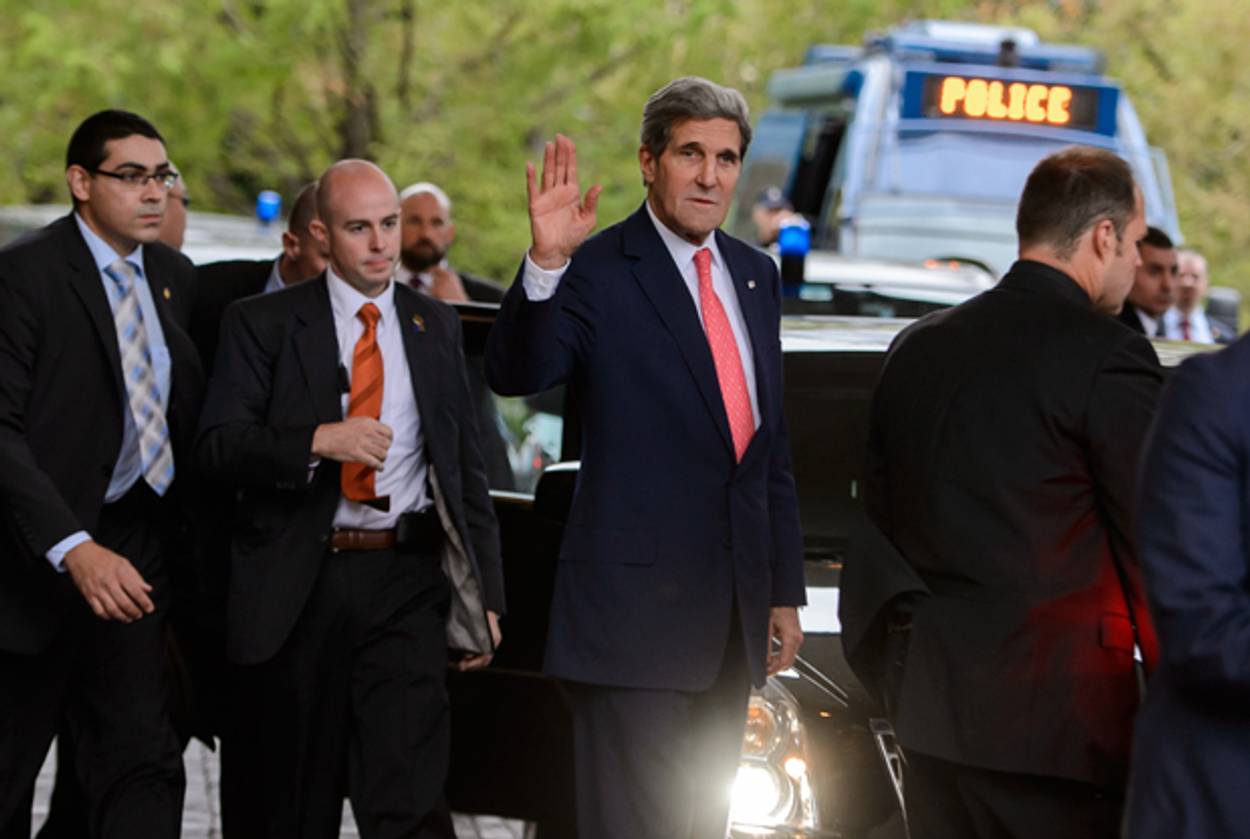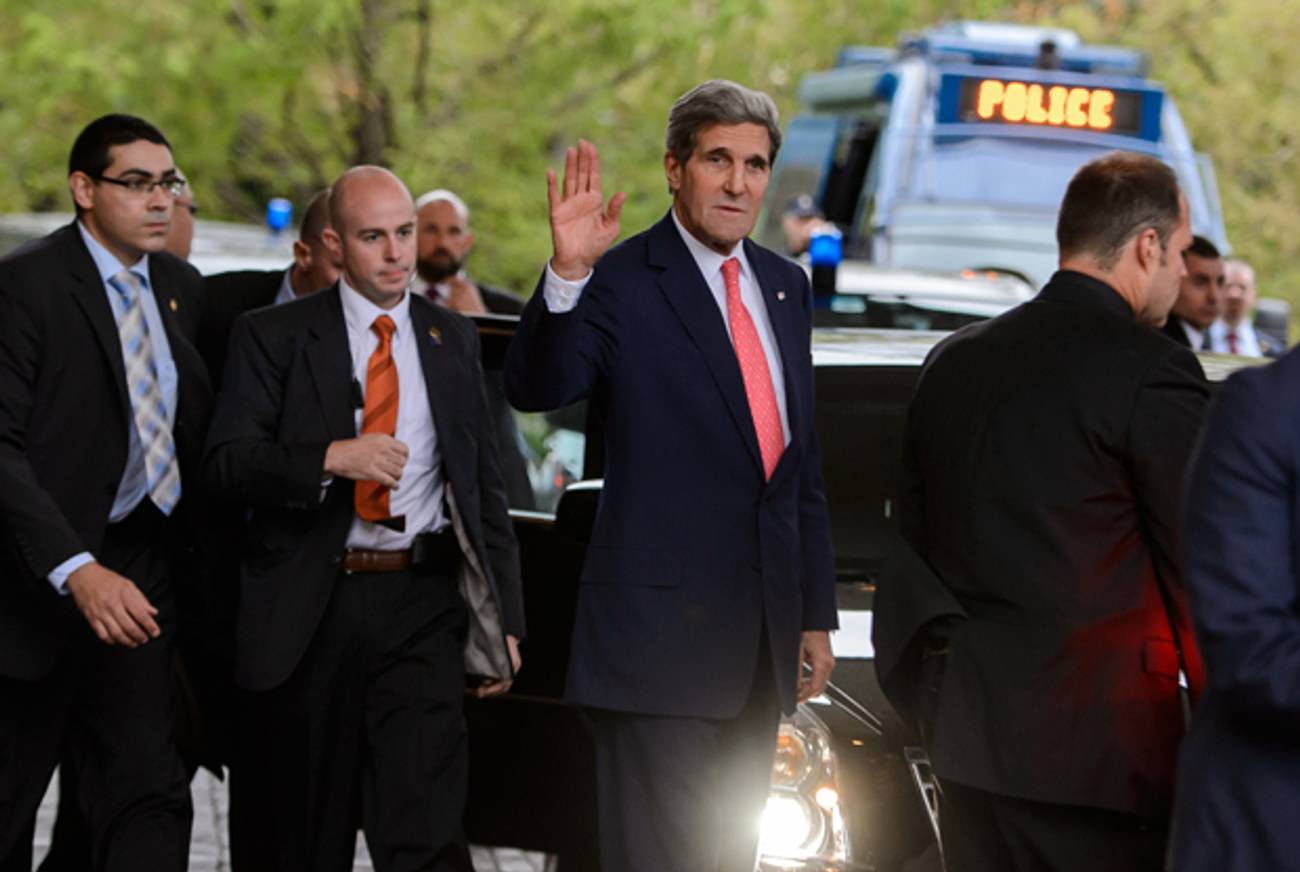Painting Israel as a Spoiler in the Iran Negotiations
The Guardian and others think only Israel opposes Iran nuclear deal




At seemingly every stage in the ever-heightening drama between Iran and the international community over the former’s burgeoning nuclear program, there’s been an implicit (and, at times, not so implicit) effort to paint Israel as the perpetual spoiler in the process. When the international community came together to forge sanctions against Iran, Israeli officials were among the most vocal in pushing for tougher ones. (It’s been argued convincingly that the strength of the sanctions is what brought Iran to the negotiating table in the first place.)
Over the weekend, as the recent nuclear negotiations seemed about ready to yield a deal that would ease sanctions on Iran while handing it a free pass on its uranium enrichment, Israeli Prime Minister Benjamin Netanyahu took the case against the deal to anyone who would listen. When the deal didn’t come to pass, the Guardian ran a story explaining how the deal was close to unraveling and you’ll never guess why.
In a bid to contain the danger, the lead US negotiator, Wendy Sherman, flew straight from the talks in Geneva to Israel to reassure Binyamin Netanyahu’s government that the intended deal would not harm his country’s national interests.
The hastily arranged trip represented an acknowledgement of Netanyahu’s power to block a deal through his influence in the US Congress and in Europe. Egged on by the Israelis, the US Senate is poised to pass new sanctions that threaten to derail the talks before they get to their planned next round in 10 days’ time.
Wow. The story might have included a line about how Secretary of State John Kerry decamped for the United Arab Emirates after a deal wasn’t reached, but Emirati opposition to Iran’s nuclear program–like Saudi opposition to it—isn’t quite as sexy as Israeli opposition. And what about the French, the country in the P5+1 group that most stridently opposed the deal in part because it wouldn’t stop Iran from building a reactor that could producing plutonium?
More immediately, Netanyahu demonstrated over the weekend that he could sway the Geneva talks from the inside through his relationship with Paris.
Ah yes, France of all good countries is in Israel’s pocket. Of course, it’s much more complicated and this narrative, which you’ll find both in 140-character bursts and stories, smacks of that paranoid, evergreen charge that all wars and international campaigns are waged on behalf of Israel, a claim that devolves from Israel into “the Jews” as it goes through portal after conspiratorial portal. Plenty of countries are scared of a nuclear Iran and want a deal to stop it from coming to pass.
Adam Chandler was previously a staff writer at Tablet. His work has appeared in the New York Times, the Wall Street Journal, the Atlantic, Slate, Esquire, New York, and elsewhere. He tweets @allmychandler.